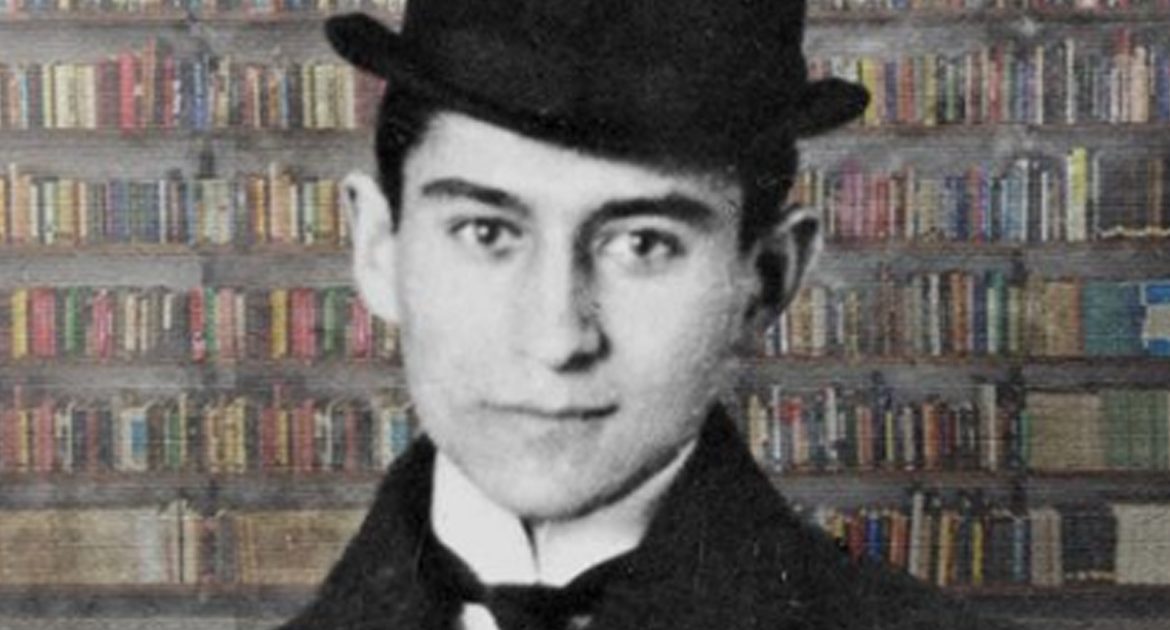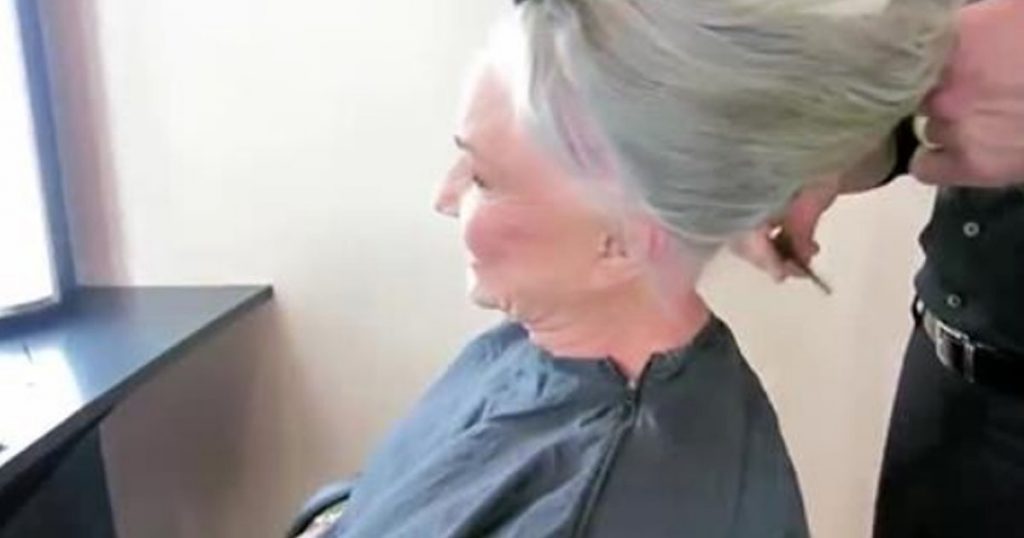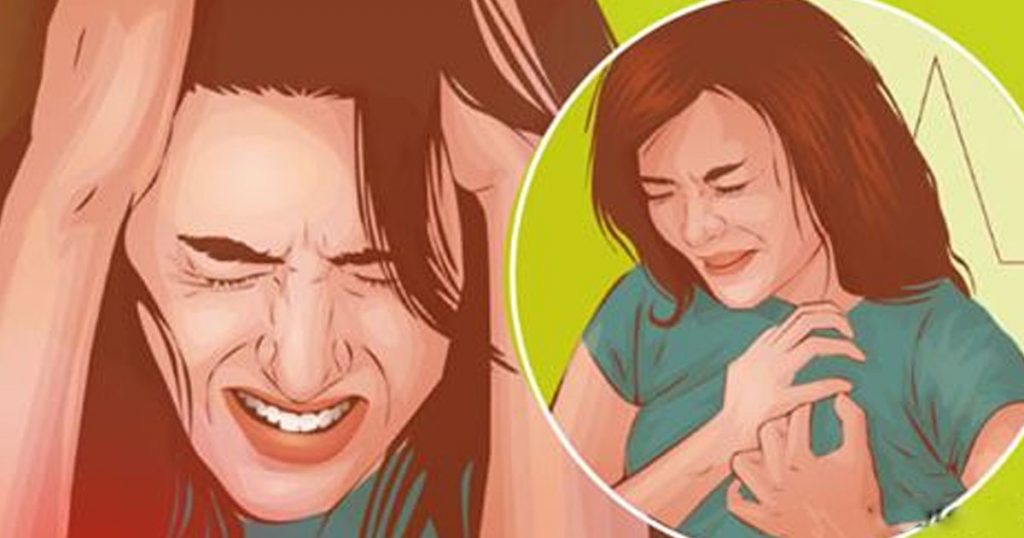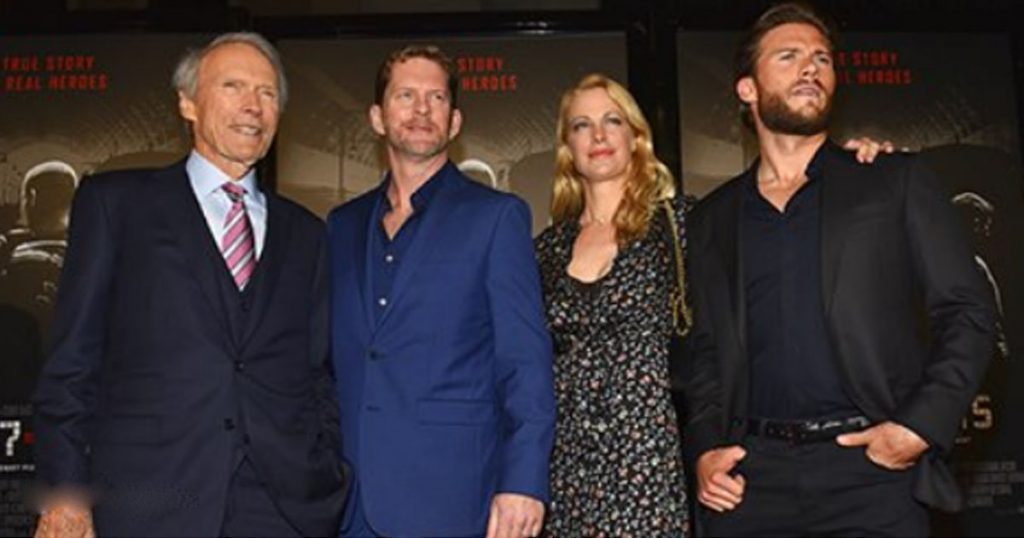“It is, after all, not necessary to fly right into the middle of the sun, but it is necessary to crawl to a clean little spot on earth where the sun sometimes shines and one can warm oneself a little.”
BY MARIA POPOVA
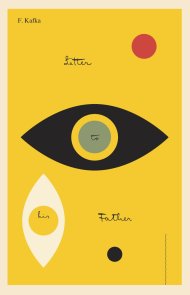
Franz Kafka was one of history’s most prolific and expressive practitioners of what Virginia Woolf called “the humane art.” Among the hundreds of epistles he penned during his short life were his beautiful and heartbreaking love letters and his magnificent missive to a childhood friend about what books do for the human soul. Although he imbued most with an extraordinary depth of introspective insight and self-revelation, none surpass the 47-page letter he wrote to his father, Hermann, in November of 1919 — the closest thing to an autobiography Kafka ever produced. A translation by Ernst Kaiser and Eithne Wilkins was posthumously published as Letter to His Father (public library) in 1966.
Prompted in large part by the dissolution of his engagement to Felice Bauer, in which Hermann’s active disapproval of the relationship was a toxic force and which resulted in the estrangement of father and son, 36-year-old Kafka set out to hold his father accountable for the emotional abuse, disorienting double standards, and constant disapprobation that branded his childhood — a measured yet fierce outburst of anguish and disappointment thirty years in the buildup.
His litany of indictments is doubly harrowing in light of what psychologists have found in the decades since — that our early limbic contact with our parents profoundly shapes our character, laying down the wiring for emotional habits and patterns of connecting that greatly influence what we bring to all subsequent relationships in life, either expanding or contracting our capacity for “positivity resonance” depending on how nurturing or toxic those formative relationships were. For those of us with similar experiences, be it inflicted by a patriarch or a matriarch, Kafka’s letter to his father is at once excruciating in its deep resonance and strangely comforting in its validation of shared reality.
Kafka writes:
Dearest Father,
You asked me recently why I maintain that I am afraid of you. As usual, I was unable to think of any answer to your question, partly for the very reason that I am afraid of you, and partly because an explanation of the grounds for this fear would mean going into far more details than I could even approximately keep in mind while talking. And if I now try to give you an answer in writing, it will still be very incomplete, because, even in writing, this fear and its consequences hamper me in relation to you and because the magnitude of the subject goes far beyond the scope of my memory and power of reasoning.
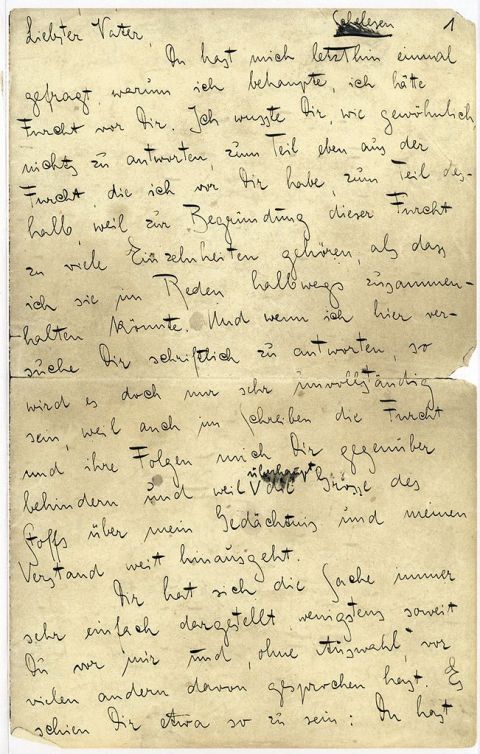
The first page of Kafka’s letter to his father.
Kafka paints the backdrop of his father’s emotional tyranny and lays out what he hopes the letter would accomplish for both of them:
To you the matter always seemed very simple, at least in so far as you talked about it in front of me, and indiscriminately in front of many other people. It looked to you more or less as follows: you have worked hard all your life, have sacrificed everything for your children, above all for me, consequently I have lived high and handsome, have been completely at liberty to learn whatever I wanted, and have had no cause for material worries, which means worries of any kind at all. You have not expected any gratitude for this, knowing what “children’s gratitude” is like, but have expected at least some sort of obligingness, some sign of sympathy. Instead I have always hidden from you, in my room, among my books, with crazy friends, or with extravagant ideas… If you sum up your judgment of me, the result you get is that, although you don’t charge me with anything downright improper or wicked (with the exception perhaps of my latest marriage plan), you do charge me with coldness, estrangement, and ingratitude. And, what is more, you charge me with it in such a way as to make it seem my fault, as though I might have been able, with something like a touch on the steering wheel, to make everything quite different, while you aren’t in the slightest to blame, unless it be for having been too good to me.
This, your usual way of representing it, I regard as accurate only in so far as I too believe you are entirely blameless in the matter of our estrangement. But I am equally entirely blameless. If I could get you to acknowledge this, then what would be possible is — not, I think, a new life, we are both much too old for that — but still, a kind of peace; no cessation, but still, a diminution of your unceasing reproaches.
But this is where the similarity ends. Kafka sees in his father everything he himself is not — a man of “health, appetite, loudness of voice, eloquence, self-satisfaction, worldly dominance, endurance, presence of mind, knowledge of human nature, a certain way of doing things on a grand scale, of course also with all the defects and weaknesses that go with these advantages and into which your temperament and sometimes your hot temper drive you.” The anguish resulting from this disparity of temperaments coupled with a disparity of power between parent and child is familiar to all who have lived through a similar childhood — the constantly enforced, with varying degrees of force, sense that the parent’s version of reality is always right simply by virtue of authority and the child’s always wrong by virtue of submission, and thus the child comes to internalize the chronic guilt of wrongness.
With such a child’s classic cycle of accusation and apologism in making sense of a parent’s hurtful behavior, Kafka considers his father’s shortcomings with equal parts pain and compassion:
We were so different and in our difference so dangerous to each other that if anyone had tried to calculate in advance how I, the slowly developing child, and you, the full-grown man, would stand to each other, he could have assumed that you would simply trample me underfoot so that nothing was left of me. Well, that did not happen. Nothing alive can be calculated. But perhaps something worse happened. And in saying this I would all the time beg of you not to forget that I never, and not even for a single moment, believe any guilt to be on your side. The effect you had on me was the effect you could not help having. But you should stop considering it some particular malice on my part that I succumbed to that effect.
I was a timid child. For all that, I am sure I was also obstinate, as children are. I am sure that Mother spoilt me too, but I cannot believe I was particularly difficult to manage; I cannot believe that a kindly word, a quiet taking by the hand, a friendly look, could not have got me to do anything that was wanted of me. Now you are, after all, at bottom a kindly and softhearted person (what follows will not be in contradiction to this, I am speaking only of the impression you made on the child), but not every child has the endurance and fearlessness to go on searching until it comes to the kindliness that lies beneath the surface. You can only treat a child in the way you yourself are constituted, with vigor, noise, and hot temper, and in this case this seemed to you, into the bargain, extremely suitable, because you wanted to bring me up to be a strong brave boy.
Kafka recounts one particularly traumatic incident when one night as a young boy, he kept crying for water — “not, I am certain, because I was thirsty, but probably partly to be annoying, partly to amuse myself,” he explains with that learned reality-questioning apologism he carried into adulthood — until his father grew so angry that he yanked little Franz out of bed, carried him out onto the balcony, and left him there in nothing but his nightshirt, shutting the door. He writes:
I was quite obedient afterwards at that period, but it did me inner harm. What was for me a matter of course, that senseless asking for water, and the extraordinary terror of being carried outside were two things that I, my nature being what it was, could never properly connect with each other. Even years afterwards I suffered from the tormenting fancy that the huge man, my father, the ultimate authority, would come almost for no reason at all and take me out of bed in the night and carry me out onto the [balcony], and that meant I was a mere nothing for him.
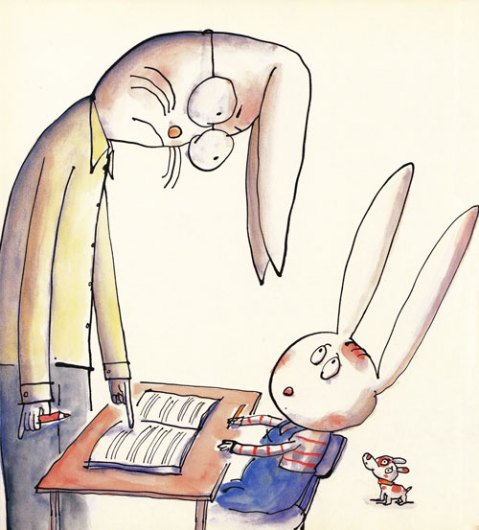
Illustration by Pascal Lemaitre from ‘The Book of Mean People’ by Toni and Slade Morrison. Click image for more.
In a poignant lament that calls to mind the contrasting childhood of Henri Matisse, who was bathed in parental support, Kafka bemoans his father’s attitude toward his academic and creative endeavors:
What I would have needed was a little encouragement, a little friendliness, a little keeping open of my road, instead of which you blocked it for me, though of course with the good intention of making me go another road. But I was not fit for that… At that time, and at that time in every way, I would have needed encouragement.
In reflecting on his father’s particularly oppressive “intellectual domination,” Kafka speaks to the particular burden of children whose parents have risen from poverty to success by their own efforts. (In factuality, Hermann grew up in a middle-class family but liked to mythologize the hardships of his youth after he became a successful businessman.) With piercing insight into the self-righteousness syndrome that befalls many such self-made people who come to believe their own myth of omnipotence, Kafka writes:
You had worked your way so far up by your own energies alone, and as a result you had unbounded confidence in your opinion. That was not yet so dazzling for me as a child as later for the boy growing up. From your armchair you ruled the world. Your opinion was correct, every other was mad, wild, meshugge, not normal. Your self-confidence indeed was so great that you had no need to be consistent at all and yet never ceased to be in the right. It did sometimes happen that you had no opinion whatsoever about a matter and as a result all opinions that were at all possible with respect to the matter were necessarily wrong, without exception. You were capable, for instance, of running down the Czechs, and then the Germans, and then the Jews, and what is more, not only selectively but in every respect, and finally nobody was left except yourself. For me you took on the enigmatic quality that all tyrants have whose rights are based on their person and not on reason.
Once again, Kafka returns to how his father’s warped and solipsistic view of reality made his own bleed with uncertainty and self-doubt:
All these thoughts, seemingly independent of you, were from the beginning burdened with your belittling judgments; it was almost impossible to endure this and still work out a thought with any measure of completeness and permanence.
One especially frequent form of belittlement was Hermann’s habit of dismissing anything that excited and inspired young Franz, invariably crushing the boy’s interest in pursuing anything — a particularly poisonous serpent to have in one’s nest of idea-incubation. He writes:
It was only necessary to be happy about something or other, to be filled with the thought of it, to come home and speak of it, and the answer was an ironical sigh, a shaking of the head, a tapping on the table with a finger… Of course, you couldn’t be expected to be enthusiastic about every childish triviality, when you were in a state of fret and worry. But that was not the point. Rather, by virtue of your antagonistic nature, you could not help but always and inevitably cause the child such disappointments; and further, this antagonism, accumulating material, was constantly intensified; eventually the pattern expressed itself even if, for once, you were of the same opinion as I; finally, these disappointments of the child were not the ordinary disappointments of life but, since they involved you, the all-important personage, they struck to the very core. Courage, resolution, confidence, delight in this and that, could not last when you were against it or even if your opposition was merely to be assumed; and it was to be assumed in almost everything I did.
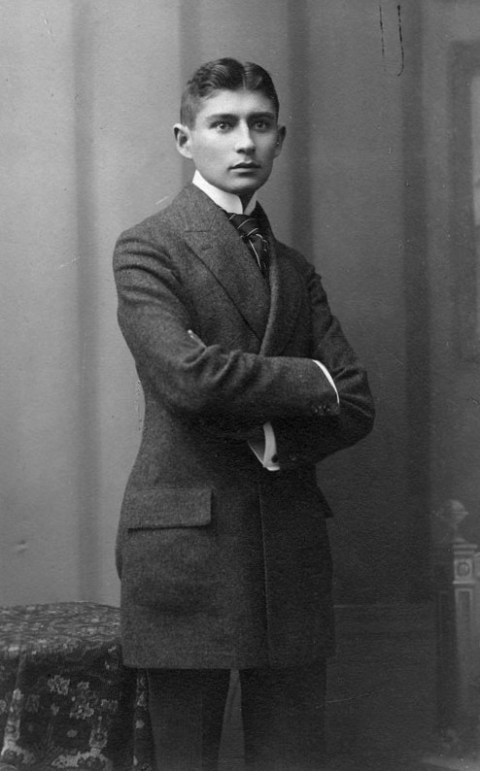
Young Franz Kafka
Writing only five years after Freud introduced the concept of narcissism and half a century before Narcissistic Personality Disorder came to be classified in psychiatry’s bible, the Diagnostic and Statistical Manual of Mental Disorders, Kafka offers a perfect and prescient diagnosis of his father:
What was always incomprehensible to me was your total lack of feeling for the suffering and shame you could inflict on me with your words and judgments. It was as though you had no notion of your power. I too, I am sure, often hurt you with what I said, but then I always knew, and it pained me, but I could not control myself, could not keep the words back, I was sorry even while I was saying them. But you struck out with your words without much ado, you weren’t sorry for anyone, either during or afterwards, one was utterly defenseless against you.
Anyone who has shared life with a narcissist recognizes, of course, the chronic dispensation of such double standards and its many manifestations across all areas where rules are applied. In describing how Hermann disciplined his children at the dinner table, Kafka illustrates this narcissistic tendency with the perfect allegorical anecdote:
The main thing was that the bread should be cut straight. But it didn’t matter that you did it with a knife dripping with gravy. Care had to be taken that no scraps fell on the floor. In the end it was under your chair that there were most scraps.
The most heartbreaking effect of these disorienting double standards is that the child grows utterly confused about right and wrong, for they seem to trade places constantly depending on who the doer is, and comes to internalize the notion that he or she is always at fault. Instead of holding up a mirror to validate the child’s experience of reality, such a parent instead traps the child in a fun-house maze of mirrors that never reflect an accurate or static image. Those who have lived through this know how easily it metastasizes into a deep-seated belief that one’s interpretation of reality, especially when reality is ambiguous or uncertain, is always the wrong one, the faulty one, the one fully invalidated by the mere existence of another’s interpretation.
As a consequence of this immersion in uncertainty and self-doubt, Kafka grew increasingly preoccupied with his body and health — a tangible aspect of reality:
Since there was nothing at all I was certain of, since I needed to be provided at every instant with a new confirmation of my existence, since nothing was in my very own, undoubted, sole possession, determined unequivocally only by me — in sober truth a disinherited son — naturally I became unsure even of the thing nearest to me, my own body.
This paved the way for “every sort of hypochondria” and developed a wide range of anxieties about “digestion, hair falling out, a spinal curvature, and so on,” which swelled into tormenting fixations until he finally succumbed to real illness — the tuberculosis that would eventually take his life.
Kafka captures this draining dance with disappointment and uncertainty in another heartbreaking exhortation:
Please, Father, understand me correctly: in themselves these would have been utterly insignificant details, they only became depressing for me because you, so tremendously the authoritative man, did not keep the commandments you imposed on me. Hence the world was for me divided into three parts: one in which I, the slave, lived under laws that had been invented only for me and which I could, I did not know why, never completely comply with; then a second world, which was infinitely remote from mine, in which you lived, concerned with government, with the issuing of orders and with the annoyance about their not being obeyed; and finally a third world where everybody else lived happily and free from orders and from having to obey. I was continually in disgrace; either I obeyed your orders, and that was a disgrace, for they applied, after all, only to me; or I was defiant, and that was a disgrace too, for how could I presume to defy you; or I could not obey because I did not, for instance, have your strength, your appetite, your skill, although you expected it of me as a matter of course; this was the greatest disgrace of all.
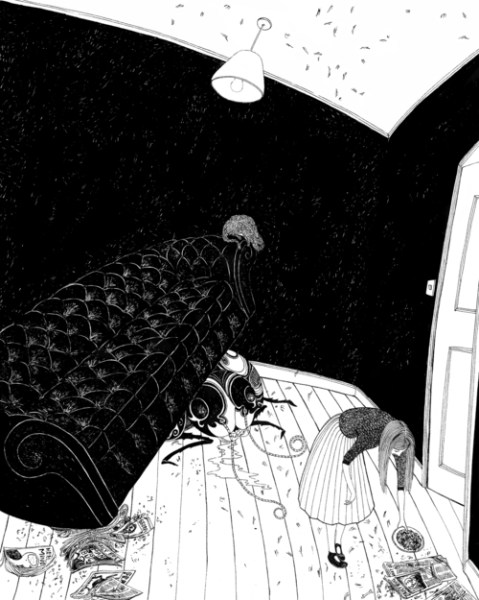
Illustration from ‘My First Kafka’ by Matthue Roth, a children’s-book adaptation of Kafka for kids. Click image for more.
Kafka turns to how his father’s explosive temperament crushed the young man’s hope of being understood — which is what everybody needs — by annihilating the possibility of calm, civil conversation in the household:
[Your] frightful, hoarse undertone of anger and utter condemnation … only makes me tremble less today than in my childhood because the child’s exclusive sense of guilt has been partly replaced by insight into our helplessness, yours and mine.
The impossibility of getting on calmly together had one more result, actually a very natural one: I lost the capacity to talk. I dare say I would not have become a very eloquent person in any case, but I would, after all, have acquired the usual fluency of human language. But at a very early stage you forbade me to speak. Your threat, “Not a word of contradiction!” and the raised hand that accompanied it have been with me ever since. What I got from you — and you are, whenever it is a matter of your own affairs, an excellent talker — was a hesitant, stammering mode of speech, and even that was still too much for you, and finally I kept silent, at first perhaps out of defiance, and then because I could neither think nor speak in your presence. And because you were the person who really brought me up, this has had its repercussions throughout my life.
[…]
Your extremely effective rhetorical methods in bringing me up, which never failed to work with me, were: abuse, threats, irony, spiteful laughter, and — oddly enough — self-pity.
This blend of abusive aplomb and martyrdom seems common in the narcissistic tyrant — familiar, at least, to those who have suffered one — but Kafka adds even more dimension by pointing out that his father’s most scarring abuse was inflicted less by direct blows than by toxic osmosis, that soul-squashing effect of being in the presence of an angry and spiritually draining despot:
I cannot recall your ever having abused me directly and in downright abusive terms. Nor was that necessary; you had so many other methods, and besides, in talk at home and particularly at business the words of abuse went flying around me in such swarms, as they were flung at other people’s heads, that as a little boy I was sometimes almost stunned and had no reason not to apply them to myself too, for the people you were abusing were certainly no worse than I was and you were certainly not more displeased with them than with me. And here again was your enigmatic innocence and inviolability; you cursed and swore without the slightest scruple; yet you condemned cursing and swearing in other people and would not have it.
His father’s continuous threats, Kafka argues, were in a way more painful than the actual harm they promised but rarely delivered. “One’s feelings became dulled by these continued threats,” he laments, but more than that, they conditioned the twisted sense that his father’s choice not to administer the promised punishment was some great act of generosity:
One had, so it seemed to the child, remained alive through your mercy and bore one’s life henceforth as an undeserved gift from you.
[…]
It is also true that you hardly ever really gave me a whipping. But the shouting, the way your face got red, the hasty undoing of the braces and laying them ready over the back of the chair, all that was almost worse for me. It is as if someone is going to be hanged. If he really is hanged, then he is dead and it is all over. But if he has to go through all the preliminaries to being hanged and he learns of his reprieve only when the noose is dangling before his face, he may suffer from it all his life. Besides, from the many occasions on which I had, according to your clearly expressed opinion, deserved a whipping but was let off at the last moment by your grace, I again accumulated only a huge sense of guilt. On every side I was to blame, I was in your debt.
Indeed, this touches on the most devastating and deadening effect of growing up in such an emotional environment — the way in which we come to mistake the crumbs of mercy for a feast of love. Kafka recounts those rare glimpses of basic parental care and affection, to which every abuser’s child learns to cling as the most precious affirmation of existence:
Fortunately, there were exceptions to all this, mostly when you suffered in silence, and affection and kindliness by their own strength overcame all obstacles, and moved me immediately. Rare as this was, it was wonderful. For instance, in earlier years, in hot summers, when you were tired after lunch, I saw you having a nap at the office, your elbow on the desk; or you joined us in the country, in the summer holidays, on Sundays, worn out from work; or the time Mother was gravely ill and you stood holding on to the bookcase, shaking with sobs; or when, during my last illness, you came tiptoeing to Ottla’s room to see me, stopping in the doorway, craning your neck to see me, and out of consideration only waved to me with your hand. At such times one would lie back and weep for happiness, and one weeps again now, writing it down.
He then turns to another of the crushing complexities of such households — the role of the passive parent as the abuser’s accomplice and thus a perpetrator of parallel emotional betrayal by failing to validate the child’s confusion and to affirm the anguish inflicted by the abuser. Kafka writes:
It is true that Mother was illimitably good to me, but for me all that was in relation to you, that is to say, in no good relation. Mother unconsciously played the part of a beater during a hunt. Even if your method of upbringing might in some unlikely case have set me on my own feet by means of producing defiance, dislike, or even hate in me, Mother canceled that out again by kindness, by talking sensibly (in the maze and chaos of my childhood she was the very prototype of good sense and reasonableness), by pleading for me; and I was again driven back into your orbit, which I might perhaps otherwise have broken out of, to your advantage and to my own.
[…]
If I was to escape from you, I had to escape from the family as well, even from Mother. True, one could always get protection from her, but only in relation to you. She loved you too much and was too devoted and loyal to you to have been for long an independent spiritual force in the child’s struggle.
Long before psychologists demonstrated how our early attachment patterns wire the way we connect later in life, Kafka laments the detrimental effect of his father’s emotional abuse on his subsequent relationships:
Relations with people outside the family … suffered possibly still more under your influence. You are entirely mistaken if you believe I do everything for other people out of affection and loyalty, and for you and the family nothing, out of coldness and betrayal. I repeat for the tenth time: even in other circumstances I should probably have become a shy and nervous person, but it is a long dark road from there to where I have really come.
But for Kafka, the most disheartening manifestation of his father’s chronic disapproval was that directed at his writing:
[In my writing] I had, in fact, got some distance away from you by my own efforts, even if it was slightly reminiscent of the worm that, when a foot treads on its tail end, breaks loose with its front part and drags itself aside. To a certain extent I was in safety; there was a chance to breathe freely. The aversion you naturally and immediately took to my writing was, for once, welcome to me. My vanity, my ambition did suffer under your soon proverbial way of hailing the arrival of my books: “Put it on my bedside table!” (usually you were playing cards when a book came)… My writing was all about you; all I did there, after all, was to bemoan what I could not bemoan upon your breast. It was an intentionally long-drawn-out leave-taking from you, yet, although it was enforced by you, it did take its course in the direction determined by me.
He later adds:
In my writing, and in everything connected with it, I have made some attempts at independence, attempts at escape, with the very smallest of success; they will scarcely lead any farther; much confirms this for me. Nevertheless it is my duty or, rather, the essence of my life, to watch over them, to let no danger that I can avert, indeed no possibility of such a danger, approach them.
Early on, his father’s attitude toward his intellectual and creative interests planted the seed of Impostor Syndrome. Likening his young self to a bank clerk who has committed fraud yet continues working in constant terror of being found out, Kafka recounts one particularly tormenting fantasy he had in high school:
Often in my mind’s eye I saw the terrible assembly of the teachers … as they would meet, when I had passed the first class, and then in the second class, when I had passed that, and then in the third, and so on, meeting in order to examine this unique, outrageous case, to discover how I, the most incapable and, in any case, the most ignorant of all, had succeeded in creeping up so far as this class, which now, when everybody’s attention had at last been focused on me, would of course instantly spew me out, to the jubilation of all the righteous liberated from this nightmare. To live with such fantasies is not easy for a child.
But the most beautiful line in the entire letter is delivered almost as an aside, as Kafka contemplates the things his father has condemned as failures — including his broken engagement — and issues an elegant admonition against the perils of dogmatic perfectionism:
It is, after all, not necessary to fly right into the middle of the sun, but it is necessary to crawl to a clean little spot on earth where the sun sometimes shines and one can warm oneself a little.
Kafka ends the letter with a lyrical and heartbreaking reflection on its ultimate purpose — to offer a little door for repairing the relationship despite their vast differences:
Things cannot in reality fit together the way the evidence does in my letter; life is more than a Chinese puzzle. But with the correction made by this rejoinder — a correction I neither can nor will elaborate in detail — in my opinion something has been achieved which so closely approximates the truth that it might reassure us both a little and make our living and our dying easier.
Although the Kaiser/Wilkins vintage translation of the letter is enduringly excellent, only in this final paragraph do I find the more recent translation by Howard Colyer superior in elegance and enchantment:
In life things don’t fit together as neatly as do the proofs in my letter — life is more than a game of patience. But after allowing for this answer, which I can’t and don’t want to elaborate on now, I still believe my letter contains some truth, it takes us closer to the truth, and therefore it may allow us to live and die with a gentler and lighter spirit.
And yet for all the autobiographical tragedy captured in Kafka’s litany of abuses and disappointments, most tragic of all is the fate of the letter. According to Kafka’s friend and official biographer Max Brod, the anguished author didn’t mail the letter but gave it to his mother, Julie, to pass along to Hermann. But she never did — instead, she returned it to her son. After all, the most devastating pathology of such relationships is the child’s compulsive effort — be it by vain hope or by concrete action — to eradicate the abusive parent’s demons and make the paltry angels endure, only to be disappointed over and over again every time the demons re-rear their undying heads. Perhaps Julie sensed this and tried, in the best way she knew, to spare her son the ultimate disappointment of seeing this most grandiose of hopes familiarly vanquished.
Lighten the psychoemotional load of Letter to His Father — which is an overwhelming yet absolutely remarkable read in its totality — with Mark Twain on what his mother taught him about compassion and Rachel Carson on parenting and why it’s more important to feel than to know.
